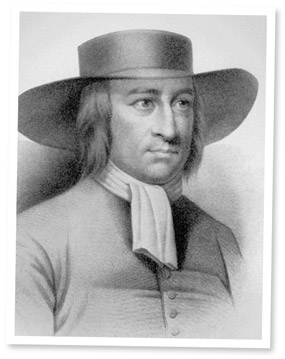The Beginning of Friends
Friends, also known as Quakers, had their origin in seventeenth-century England. As a young man, George Fox longed for a genuine faith which he did not find in the cold, legalistic church of his time. He looked in vain for human help and studied the Bible so thoroughly that he learned much of it by memory. After four years of searching, he found inner peace through trusting Jesus Christ as his Savior. Soon he began to tell others about the Gospel of Christ as God’s way to free people from sin. As Fox shared the reality he had found, others responded and joined him in spreading the good news of salvation. Thus, a movement of Christian renewal was born in 1647, which was to become known in time as the Friends Church, or Society of Friends (because, at the time, forming a competitive church to the Church of England was against the law). A rapid period of growth began in June 1652 in northern England, which saw more than 60,000 people join the movement over a 12-year period. Friends and many other groups came under severe persecution in England and were jailed for their expression of faith. This motivated a large migration of Friends to the Americas. The first governors of New Jersey, Rhode Island, and the Carolinas, as well as the founder of Pennsylvania were all members of the Society of Friends.
 The Message of Friends
The Message of Friends
Fox and early Quakers declared that salvation is a personal matter between the individual and God. No human mediator or outward ordinance is necessary to encounter the Living God. Therefore, the Friends message, with its clear, spiritual interpretation of the Gospel, was a logical conclusion of the Protestant Reformation. The Friends Church then took the logic of the New Covenant to the next level. If connection with God is Spiritual, what is the place of physical ceremony? The Friends Church has long held that life itself is sacramental – meaning that each moment of our lives is a sacrament to celebrate with and live for God. Physical ceremonies, referred to as church sacraments, are therefore de-emphasized. The sacrament of living out a baptized life in constant communion with God is an important emphasis of the Friends Church. Physical ceremonies may be practiced, but only within the context of understanding the reality of the spiritual. Friends also champion non-violence, social justice, the humane treatment of prisoners and mentally ill, simplicity of living, and absolute truthfulness in business dealings.
Friends as a Church
The Friends movement never intended to form a church denomination, and emphasized the autonomy of the local meeting for worship and business. Therefore no central authority was ever designed. This created the opportunity for splintering, which typically happened because of theological disagreements. Therefore today one can find Friends who are very evangelical and participate in mainstream Christian thought as well as groups who use the name of Friends, or Quakers, who disavow some of the primary tenants of the Christian Faith. Evangelical Friends who are associated with Mid America and other regions identified with Evangelical Friends Church International, align themselves with orthodox Christian doctrine and practice.
The Living Witness of Friends – Practical Applications
The beliefs of early Friends led them into practical action. Throughout the centuries of the Friends movement, Friends have been dedicated to taking action with respect to religious freedom, opposition to slavery and civil bondage, just treatment of minorities (especially American Indians), humane and remedial treatment of offenders, prison reform, compassionate care of the mentally ill, and aid to war victims and others in physical need. Friends taught and practiced peace as opposed to war, calling upon Christians to arm themselves with the Spirit rather than the weapons of this world. According to Christ’s command, they emphasized a single standard for truth. In a court of law, in place of an oath sworn on the Bible, Friends urged many countries to accept an “Affirmation that I always tell the truth” in place of a legal oath. In the late Colonial period, the Friends people initiated the transition from a barter system to a system based on the firm pricing of goods and services. Friends also designed an alternative to Roberts Rules of Order for business decisions. Instead of “winners and losers” brought on by the vote of a motion, Friends prayerfully discussed an issue until significant unity was achieved. Today, many corporations practice “Consensus Management” as a decision-making tool.
Friends have been faithful to their beliefs, even in the face of persecution. Throughout history, Friends have been put in prison for refusing to comply with requirements which they felt were contrary to the Gospel of Christ. Some Friends forfeited their property; others were beaten, or even killed, because they took a stand for justice and freedom. In New England the Friends Colonies stood as a counter witness to the restrictive control of the Puritan movement.
 Friends Around the World
Friends Around the World
Between 1654 and 1660, individual Friends from England had left a personal witness in more than 20 foreign countries. This pre-dated the modern missionary movement by more than a century. In the latter half of the 19th century, English and American Friends caught a vision of world need and since then have established missions in numerous countries. A number of those missions have now become indigenous churches. Ninety percent of Friends live in the United States, Kenya, Bolivia, Guatemala, Great Britain, or Burundi. Although small in number as compared to other main-line denominations, the Friends Church has provided a consistent witness and influence far beyond its size.
Follow Us!